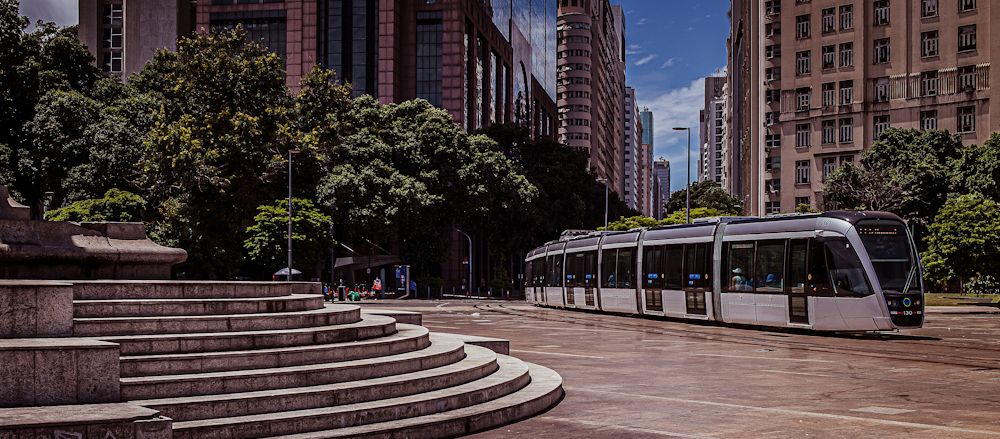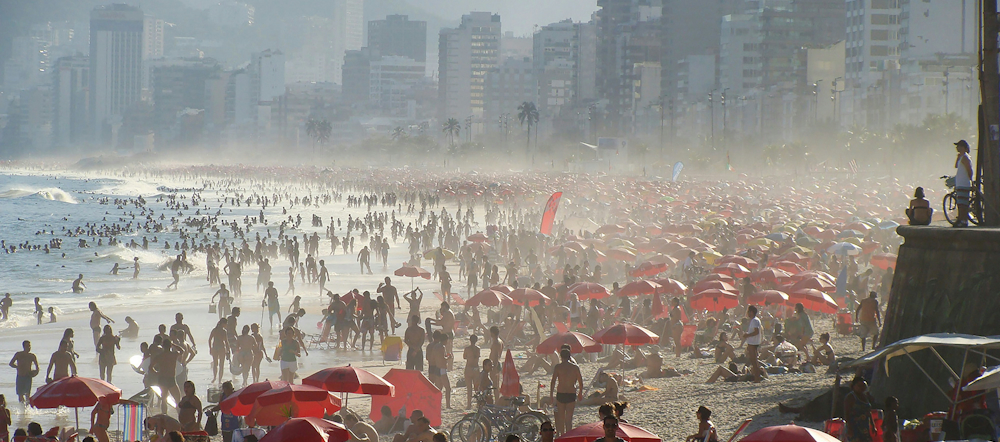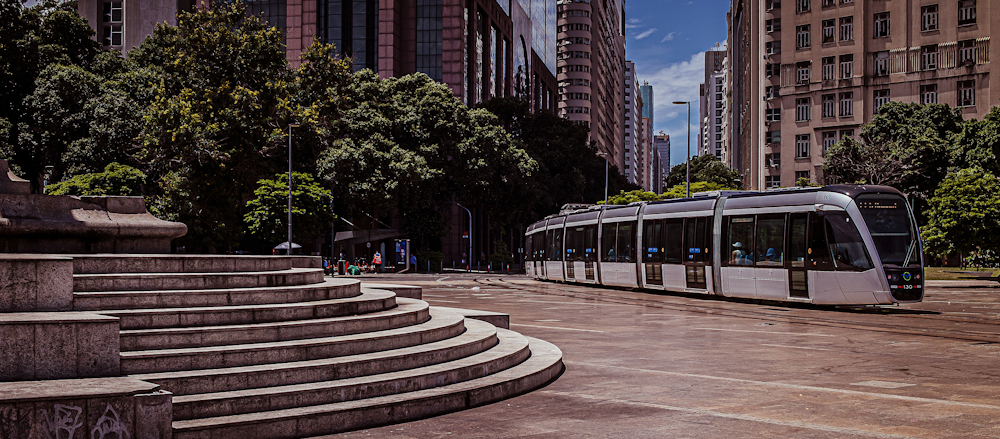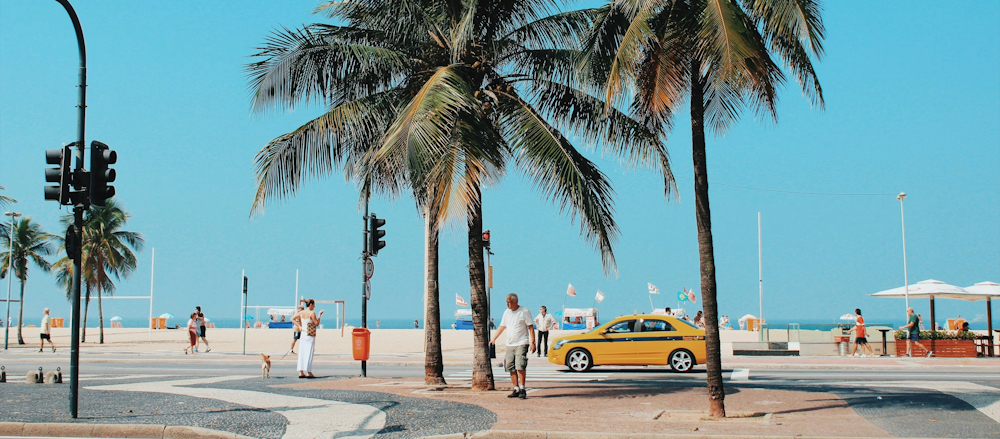Living in Rio de Janeiro as an expat
Expats moving to Rio de Janeiro will have access to stunning beaches, natural beauty, lively culture, and annual festivities. Rio is an exciting place to call home, the most glamorous of Brazil’s cities and one of the world’s most popular tourist destinations.
Rio is an important commercial hub of Brazil. Major oil, textile, shipbuilding, pharmaceutical, media, and communications companies have a presence in the city, and it also boasts a number of key educational institutions.
This diversified economy attracts many foreign workers to Rio’s shores every year. The growing tech sector, particularly software development, has also created new opportunities alongside traditional industries. That said, competition for employment is also high. The majority of expats moving to Rio de Janeiro for work are transferred here as part of a relocation package with their current employer.
Working in Rio de Janeiro

Rio is Brazil’s second economic powerhouse and a financial hub for Latin America. The competition for jobs is fierce, especially if you’re between 25 and 39, but there’s real opportunity if you know where to look.
Getting your foot in the door takes persistence, but once you’re in, the city’s business network can open many doors. Portuguese skills will make your life infinitely easier, although some multinationals operate in English.
Networking dominates the job search process, often proving as important as qualifications. Friends, work contacts, or even someone you meet at a barbecue might tip you off about openings before they hit the job boards. Rio runs on relationships, so building your network is half the battle.
Big international names have set up shop here: Petrobras dominates the oil scene, Eletrobras runs much of the power grid, GE has their oil and gas operations, and several pharmaceutical companies have regional headquarters. Getting into one of these can be your ticket to long-term success.
Finding a Job and Working in Rio de Janeiro
Lifestyle in Rio de Janeiro
The lifestyle in Rio de Janeiro is part of what makes moving to the city so attractive. Shopaholics, foodies, revellers and fitness enthusiasts will all find what they’re looking for in Rio.
The nightlife scene is lively and casual, with bars, live music venues, clubs and lounges scattered throughout neighbourhoods like Ipanema and Leblon. The food scene ranges from cheap street tacos to white-tablecloth restaurants that’ll cost you a week’s salary.
Rio practically begs you to get outside. You can surf at Arpoador in the morning, hike up to Christ the Redeemer by afternoon, and play beach volleyball as the sun sets over Ipanema. Stand-up paddleboarding has caught on big time, and there’s always a pickup soccer game happening somewhere. Cariocas take fitness seriously – you’ll see people doing pull-ups from the monkey bars along the beaches at dawn, running the lagoon loop, or hitting outdoor gym equipment that’s free to use.
Finding accommodation in Rio de Janeiro
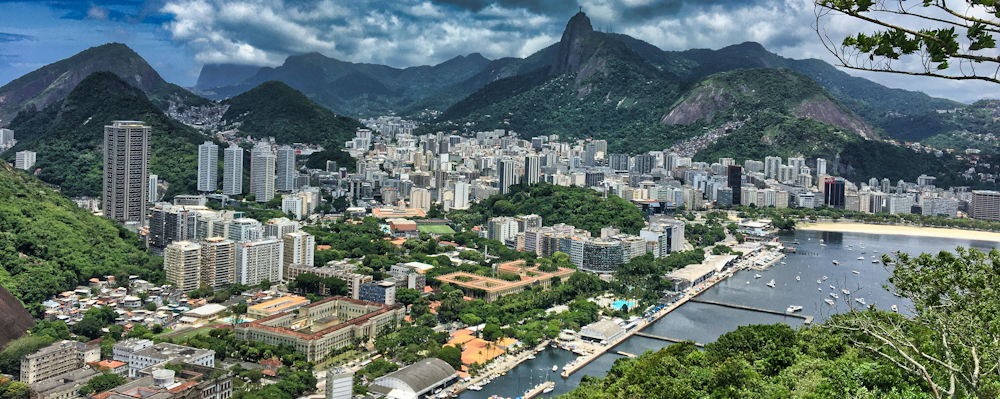
Finding accommodation in Rio de Janeiro as an expat typically focuses on the safer, well-connected neighbourhoods favoured by the international community. The Zona Sul (South Zone) is the most popular choice, with areas like Copacabana, Ipanema, Leblon and Jardim Botânico featuring beachfront living alongside good infrastructure and services.
Budget-conscious expats often land in Flamengo or Botafogo first. Both neighbourhoods punch above their weight – safe, well-connected, and you won’t break the bank. Barra da Tijuca feels more like Miami, with high-rise apartments and massive shopping centres, but you’ll spend half your life in traffic getting to Centro or the South Zone.
Renting Accommodation in Rio de Janeiro
Best Places to Live in Rio de Janeiro
Cost of living in Rio de Janeiro
If you’re earning in a foreign currency, the cost of living in Rio de Janeiro is reasonable and well below that of major destinations in Western Europe and North America. The city caters to various budgets, from affordable local dining and public transport to upscale international options.
As with most Brazilian cities, the extremes of wealth and poverty are visible in Rio. If you’re being paid in the local currency, you’ll likely feel the pinch and should budget adequately to ensure all costs are covered. Healthcare and housing in prime areas represent the highest expenses for most expats, along with imported goods and international schooling.
Living in Rio de Janeiro with children

Expats living in Rio de Janeiro with children will find a family-friendly atmosphere rooted in Brazilian culture’s emphasis on family life. The city has numerous activities for children, from beach sports and outdoor adventures to cultural attractions and family-oriented events.
You’ll also need good health insurance coverage when living in Rio. Public healthcare in Rio is underdeveloped, with long waiting times for basic and specialist healthcare. Most international residents prefer private facilities, which deliver excellent healthcare but at a high price. Many expat families also hire domestic helpers, as it’s both affordable and common practice in Brazil.
Health Insurance in Rio de Janeiro
Finding a school in Rio de Janeiro
Finding a school in Rio de Janeiro gives expat families access to several well-established international institutions. If you’re moving to Rio with children, you need not stress about finding good schools.
There are several international schools in the city with curricula from various countries. These schools typically give instruction in English or other international languages while often incorporating Portuguese language learning to help students integrate with local culture.
Getting your kids into the better international schools means planning ahead – sometimes months or years ahead. Popular grades fill up fast, and most schools want to see report cards and language test scores, and they’ll interview both you and your child. Some require entrance exams too.
School fees vary wildly depending on which institution and grade level you’re looking at, but expect it to be one of your biggest monthly expenses as an expat family. The application process alone can take months, so start researching schools before you even arrive.
Education in Rio de Janeiro
International Schools in Rio de Janeiro
Getting around in Rio de Janeiro
As is the case in most of Brazil’s major cities, traffic congestion in Rio can be unbearable and make travelling by car impractical. The city boasts an extensive and largely efficient metro system connecting key areas from the southern beaches to the northern zones.
The Rio Card gives convenient payment across all public transport modes, including metro, buses and the BRT (Bus Rapid Transit). Average waiting times for metro and BRT are typically 10 to 20 minutes during peak hours.
The metro is considered one of the safest transport options in the city. The BRT system and regular bus network have comprehensive coverage. Avoid buses at night and stick to licensed taxis or ride-sharing apps, as it gets a bit dodgier.
Getting Around in Rio de Janeiro
Climate and weather in Rio de Janeiro
The beaches are gorgeous, and it’s warm year-round. But what catches many newcomers off guard is how much more laid-back Rio feels compared to the business grind of São Paulo or the political pressure cooker that is Brasília.
Temperatures are warm most of the time along the coast, which means you can actually plan outdoor weekend trips without checking the weather forecast. The heat gets intense in summer (December to February), but there’s always a beach breeze or the ocean to cool off in.
Summer months (December to March) bring hot, humid weather with temperatures reaching the upper 90s°F (high 30s°C), while winters (June to September) stay mild with daytime temperatures around 86°F (30°C). Rain is more common during summer months, but warm, sunny days are frequent year-round.
As residents of one of the world’s most popular tourist destinations, Cariocas (as the locals are referred to) are used to having foreigners in their city. They are generally open and welcoming towards newcomers, especially if one tries to speak Portuguese. With a little time and effort, expats moving to Rio de Janeiro are sure to settle into their new life in this lively city.


